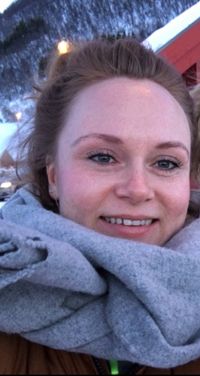“First and foremost, I am very pleased I can use my education in my job, where daily communication takes place in Chinese or Norwegian,” says Martin.
Career interviews
As a commentator at Aftenposten, I have the opportunity to reach many people with my opinions, and I get to use both my Chinese and philosophy studies. It is incredibly exciting and satisfying!
“I never expected to be working for the Police, or that my education would be relevant here, but it actually is,” says Camilla.
“Good linguistic skills and an understanding of the social structure in one of the most powerful countries in the world are something that we need more of in Norway” says Tora who studied India studies.
Harriet acquired an invaluable network through her exchange visit to India, which later allowed her to set up her own company.
Humanities specialists have some of the most varied and interesting careers – because our studies enable us to work in practically all fields, says ?ystein.
"Do things you are truly interested in doing". This is Sunniva’s best advice for finding a job of interest. She studied Chinese, and now works as an embassy secretary in Beijing.
The media crave expertise on China, and journalists who can read Chinese and who have a Chinese network are very much in demand, explains Ragnhild.
“Language skills are important, but it’s even more important to have something to say”. Henrik studied Japanese, and says that versatility is the best asset of the area studies at UiO.








